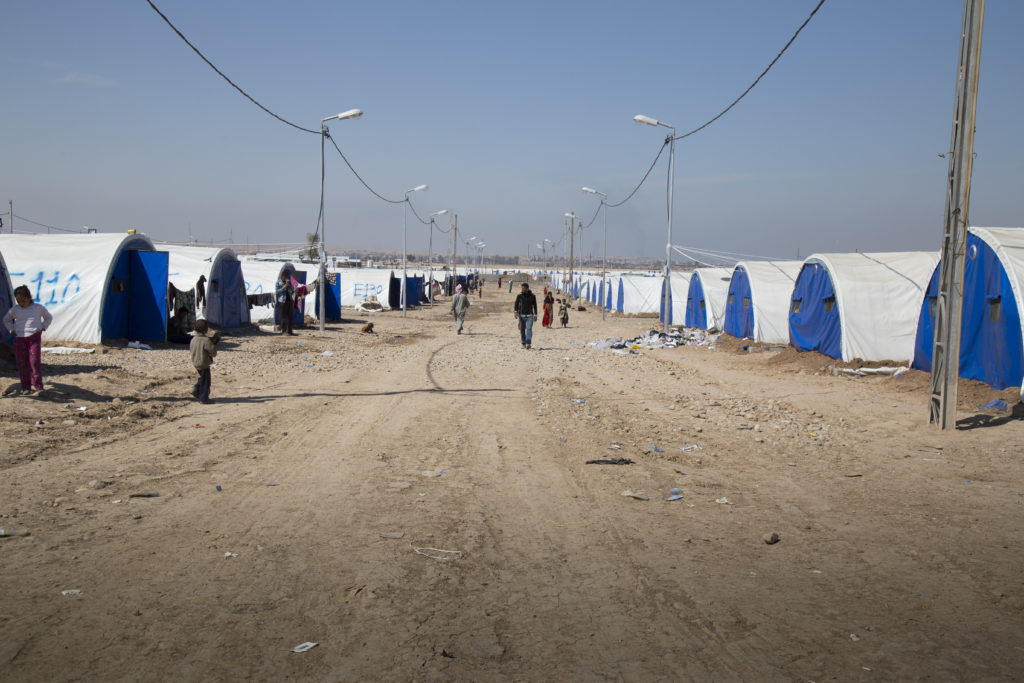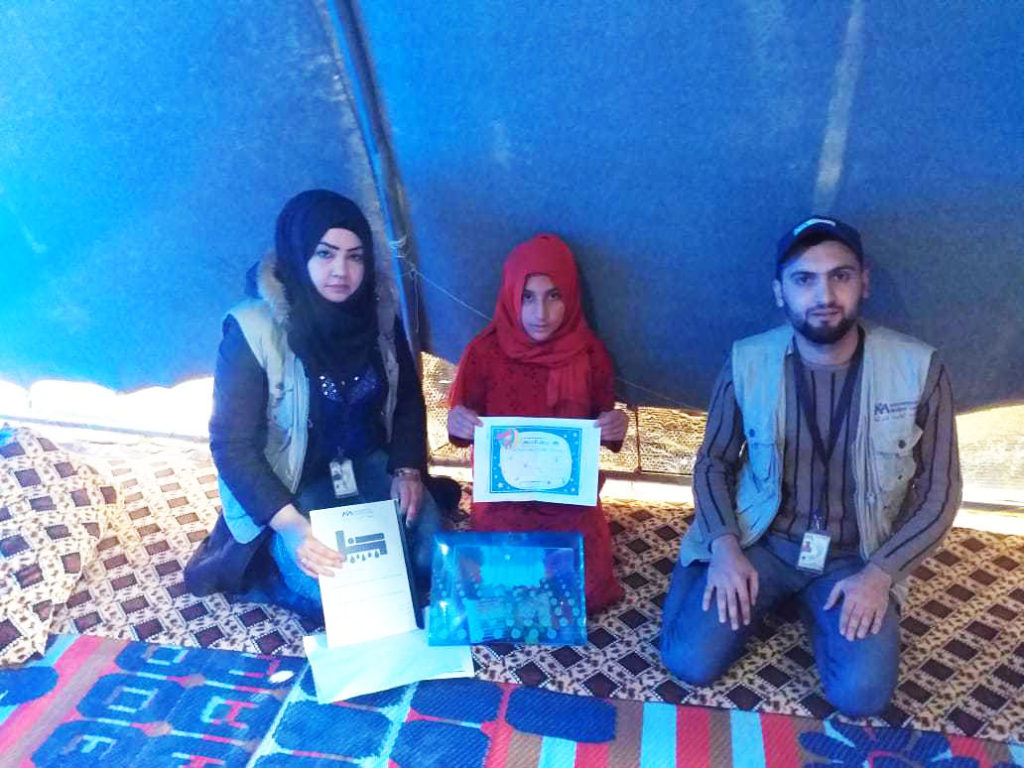Salim Al-Saffer, an International Medical Corps Community Health Officer in Iraq, still remembers clearly the scene he witnessed last fall: a young girl, off on her own at the Jada Displacement Camp southeast of Mosul, sobbing her heart out.
Salim and a couple of his colleagues had spotted the child as they made their daily rounds at the camp, home to many residents who had fled their homes in the fall of 2016 to escape an Iraqi-led military offensive launched to rid the region of Islamic State fighters who had conquered the country’s second-largest city and its surrounding villages two years before.
When the girl refused their attempts to console her, they asked where she lived. After she had pointed to a nearby tent that she and her family called home, the health workers began a conversation with her mother, listening as she related the family’s frustration and sadness surrounding the 11-year-old girl. Clearly as upset with herself as she was with Foza, her daughter, she explained through her own tears how the girl had begun to wet her bed at night about a year previously.
“Living in a tent is not easy,”
the mother said, noting that caring for her husband and two other children, plus Foza, was exhausting at the best of times. “I need to keep everything clean for my family. I don’t have a washing machine but I still have to clean her bed and sheets almost every morning. I’ve tried so hard to control my emotions, but sometimes I just can’t. It‘s added stress for us all.”

Sadly, bedwetting among children in the region is not unusual, with about 90 known cases in Jada Camp. International Medical Corps had successfully treated about 25 of these cases and was tending to a second, similar-sized group at the camp when restrictions connected to the COVID-19 pandemic forced our community health workers to suspend their activities in March.
Though an array of underlying causes can trigger bedwetting in children, many of the families now living in the displacement camps of northern Iraq have gone through severe emotional stress. Patient assessments conducted by skilled health professionals often conclude that the fear and intense anxiety unleased by the conflict likely play a role in the behavior. Children who first survived the terror of life under ISIS, then went through the harrowing battle to drive the militants out, then were forced to run for their lives with panicked parents seeking safety amid the chaos, are frequently found to be in need of psychosocial support.
Bedwetting usually begins around the age of 5 or earlier. In normal times, bedwetting tends to be a simple developmental delay, rather than a phenomenon tied to emotional or physiological issues—but in northern Iraq, these have not been normal times.
Our community health team first noticed bedwetting as an issue among displaced children in 2015—a year after ISIS took control of large swaths of both northern Iraq and eastern Syria. Since then, the team has worked closely with families, often referring affected children to health facilities for assessment and advice, usually relying on a behavioral-change approach and referring some cases to mental health and psychosocial support (MHPSS) specialists when deemed appropriate.
The community health team first referred Foza to a physician, to exclude any physiological cause for her behavior. Once that was ruled out, they began a protocol developed by International Medical Corps based on behavioral-change therapy.
An analysis of Foza’s case found that her bedwetting began when the family lost its permanent home, and was forced to flee to the displacement camp and adjust to a completely new life—one in which home is a tent and the future uncertain. The children’s sleeping habits and diet also changed suddenly and dramatically. In addition, the mood within the displaced family carried a new edge, as pressures on hard-pressed parents occasionally boiled over.
Our health workers advised the family to build more structure into Foza’s life—for example, fixed supper and bedtimes, with an alarm for a bathroom run during the nighttime hours. They suggested that the parents carve out a bit of time to give her extra attention and care, and stop negative comments about her condition. The team then monitored her progress for six to eight weeks, watching as her bedwetting gradually eased. As she started to have fully dry nights, she proudly tracked her progress, marking each dry night on a calendar with a star-shaped sticker.

During a late December home visit, the team pronounced Foza cured. The atmosphere at home had softened markedly, with Foza’s mother declaring herself “happy and grateful” for her daughter’s string of dry nights. Just before Iraq’s government-ordered lockdown in February to fight the COVID-19 pandemic, a follow-up visit by the team reaffirmed that Foza’s ordeal was behind her. As for Foza herself, she seemed to be a different child, as she thanked the health workers for changing her life.
“I’m more confident now,” she told them. “I go to school happily and am motivated to study, because I want to be a community health worker when I grow up, so I can help other kids.”
